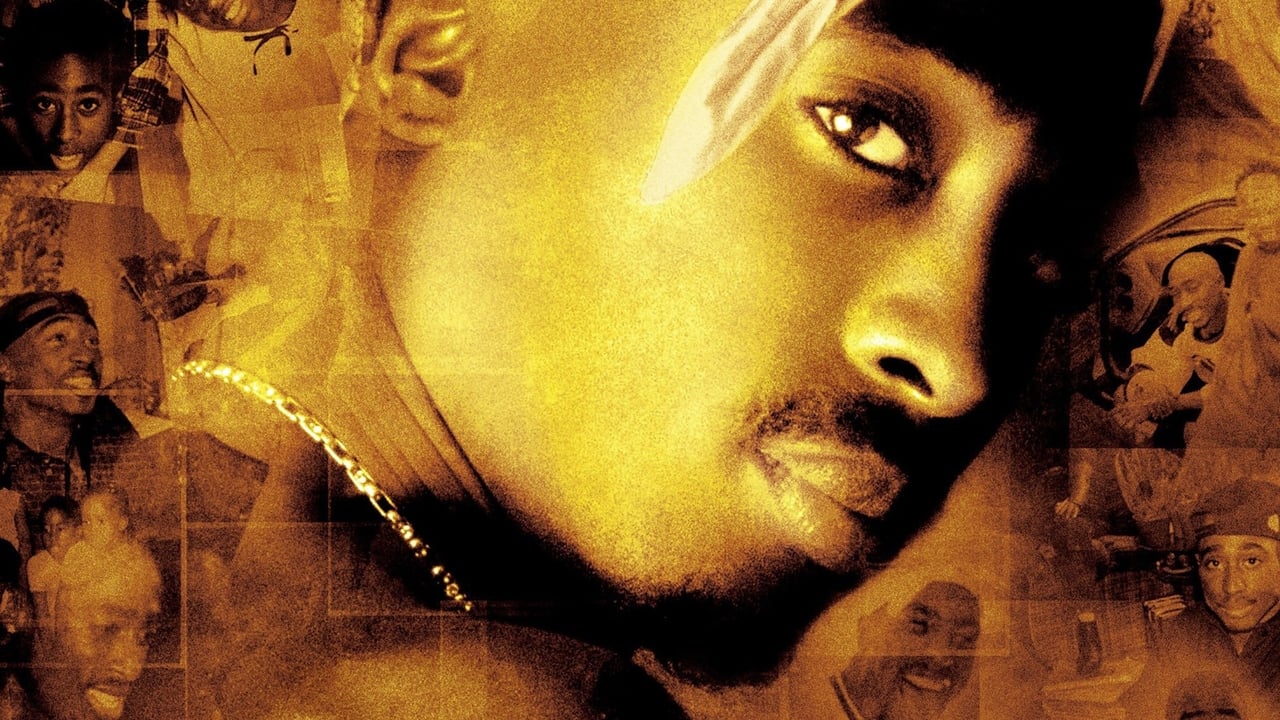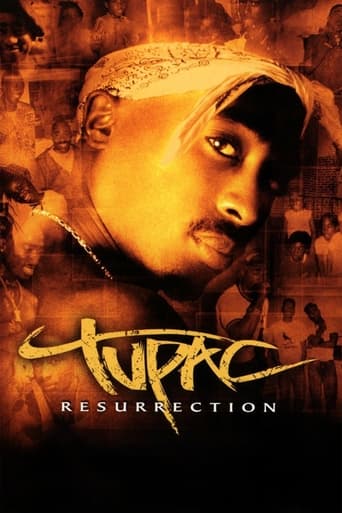

We have this guy talking about the death of Tupac being more than a death of "smart black man". Then another guy comparing Tupac to the religious founders of Christianity, Islam, Buddhism. Then we have Left Eye saying that she totally agrees with Tupac whom she said decided to die from his wounds because "obviously there is life after death". This goes on and on and on with catchy expressions, "you know what I mean?", linked to catchy expressions, "you know what I mean?", and linked to other catchy expressions, "you know what I mean?". No, I hardly know what you mean because all I hear is a bunch of words and concepts with no clarity.I think they were all high on something. This movie sucked so bad. I've watched a lot of documentaries and this is probably the worst ever. The sound quality is just bass, bass, and more bass; hello, if you don't have treble, the sound of speech just sounds like mumblings which is what happened here. I'm glad I saw it on DVD instead of actually paying money to see it in a theatre.
... View More2pac along with Biggie was the main reason why I started listening to Rap. Not only did he have good music, but he also had a story to tell and it influences not only his fans, but other rap artists. This documentary was very interesting to watch and I was amased to see what a strong minded man he was, which is why I respect so even more after seeing this masterpiece. Eminem, 50 cent, Jada Pinkett smith and Snoop Dogg are one of the few that have expressed their feelings towards his death. It was a tragic moment that is defenately not forgotten, but he has left us more music that gives most of us the impression that he is still alive. From his childhood memories to his career, he explains it all in his own words. This is no doubt one of the best documentaries ever to be released.
... View MoreI don't listen to rap. The only thing I knew about Tupac Shakur before I saw this movie is that he had been shot a few years ago. After seeing this movie, I understand that Tupac had a life worth making a documentary about, but I did not like the approach the filmmakers took. I really wanted to like this movie. Parts of it were really well done, but it was so biased that I cannot honestly recommend it. It was more like a commercial for Tupac's image than a documentary on his life.Its amazing how many interviews Tupac gave in his life. We can see that he was an intelligent and affective storyteller. However, a person's life cannot be understood just by the way that person sees him or herself. A person's life also needs to be judged by other people's points of views. This could have been a great film if only the filmmakers had shown interviews with important people in Tupac's life such as his mother, his sister, his teachers in school, the artists he rapped with, his producers, etc. It was also a little difficult for a person unacquainted with Tupac's life and the world of gangsta rap music to fully understand the time line in which these events occurred.I liked the visual style of the film though (especially that 3D effect a lot of the photographs had). Those helicopter shots in Las Vegas and of the Golden Gate Bridge were beautiful too. Overall, TUPAC: RESURRECTION is a flawed film that had a lot of potential.My grade:5 out of 10
... View MoreOne of the best movies of the year. I was never a big Tupac fan but this film will appeal to anybody who is even remotely interested in the impact and importance of hip hop and the cultural significance of Tupac Shakur. Furthermore the film is a lesson on the most important racial and economic issues of our time. It is recommended to all!!!!
... View More